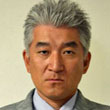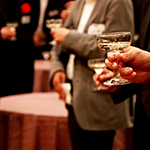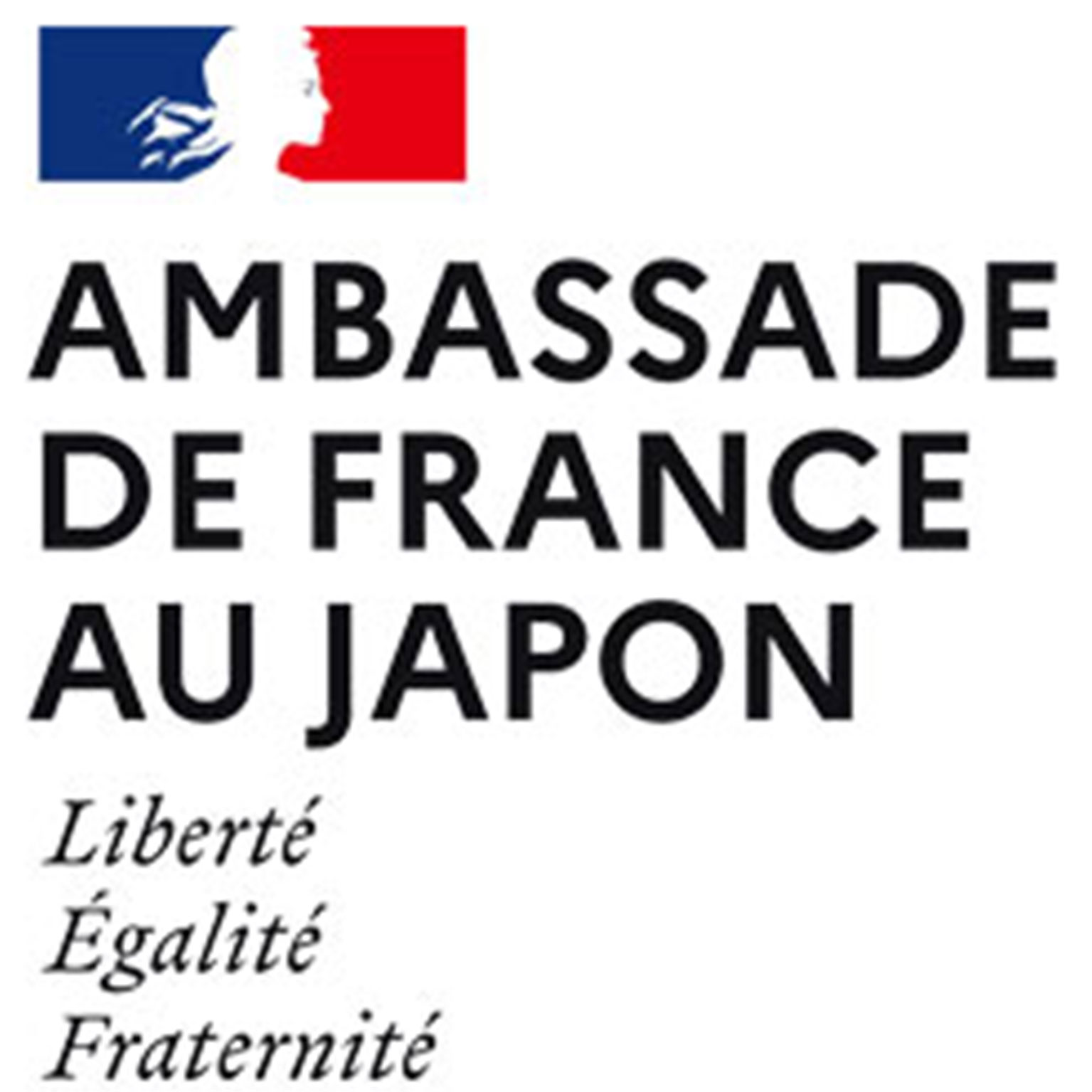- ホーム
- Laureates and Ceremony of Kiyoko Goto and Paul Bourdarie Scientific Prize
- Ceremony
- The 10th (2021) award ceremony—Cancelled
Ceremony
The 10th (2021) award ceremony—Cancelled
In consideration of the recent outbreak of COVID-19, Kiyoko Goto and Paul Bourdarie Cancer Foundation has decided to cancel the annual award ceremony and reception that was to be held on June 8, 2021 at the official residence of the French Ambassador to Japan. We would like to express our sincere gratitude for your understanding.
| Title | Kiyoko and Paul Bourdarie-Goto Scientific Prize |
|---|---|
| Laureate |
 Kazuhito FUNAI, M.D., Ph.D. |
| Associate professor, First Department of Surgery, Hamamatsu University School of Medicine | |
| Paper | Urinary Fluorescent Metabolite O-Aminohippuric Acid is a Useful Biomarker for Lung Cancer Detection (Metabolomics、2020 Sep 17;16(10):101. ) |
| Reason for selection (Dr. Jun NAKAJIMA, Chairman of the Advisory Committee) |
Dr. Funai and colleagues found that urinary o-aminohippuric acid was more abundant in lung cancer patients than normal volunteers. Urine contains a variety of fluorescent metabolites, and Dr. Funai successfully screened for metabolites that are up-regulated in cancer cells with spectrofluorometry. This study is valuable because it opens the door to screening for early lung cancer through a urine test that is not invasive for patients. |
| Message from the Laureate | As a respiratory surgeon, I have been treating lung cancer by surgery. Surgery is certainly a very effective tool for early-stage lung cancer, but it is inadequate for micrometastases that cannot be seen in preoperative images. Therefore, I got a”Diplomate, Subspecialty Board of Medical Oncology, Japanese Society of Medical Oncology” and added anti-cancer drug treatment, which is a systemic treatment. In recent years, molecular-targeted drugs and immune checkpoint inhibitors have been launched one after another in drug therapy for lung cancer, and remarkable progress has been made, but the treatment results for lung cancer are still unsatisfactory. Improving the outcome of lung cancer treatment depends on how quickly lung cancer can be detected. Therefore, this study was undertaken to determine whether fluorescent urinary metabolites could be useful biomarkers for lung cancer detection. As a result, a robust predictive biomarker for lung cancer was identified to be o-aminohippuric acid. In the future, we will plan to search for more accurate biomarkers that combine multiple fluorescent urinary metabolites, and we will use the award money received this time as an activity expense. Thank you very much for this time. |
| Title | Kiyoko and Paul Bourdarie-Goto Scientific Prize -Special Award |
|---|---|
| Laureate |
 Taiki HAKOZAKI, M.D., |
| Staff Physician, Department of Thoracic Oncology and Respiratory Medicine, Tokyo Metropolitan Cancer and Infectious Diseases Center, Komagome Hospital (Staff Physician, Department of Thoracic Oncology and Respiratory Medicine, Tokyo Metropolitan Cancer and Infectious Diseases Center, Komagome Hospital) |
|
| Paper | The Gut Microbiome Associates with Immune Checkpoint Inhibition Outcomes in Patients with Advanced Non-Small Cell Lung Cancer (Cancer Immunol Res. 2020;8(10):1243-1250.) |
| Reason for selection (Dr. Jun NAKAJIMA, Chairman of the Advisory Committee) |
Dr. Hakozaki and colleagues investigated the differences in the distribution of intestinal microflora in patients receiving immunotherapy with immune checkpoint inhibitors for non-small cell lung cancer, and found that there was a significant difference in overall survival rate depending on the abundance of specific intestinal bacteria. Although the intestinal microbiome is known to be related to human immunity and autoimmune diseases, the clarification of the relationship between the gut microbiome and cancer immunotherapy is very interesting and will contribute to the future progress of lung cancer treatment. |
| Message from the Laureate | I would like to express my heartfelt gratitude for receiving the 10th Kiyoko and Paul Bourdarie-Goto Scientific Prize (Special Award). Gut microbiome is closely involved in maintenance of homeostasis through its roles in metabolic and immune systems of the host. Its relationships with various diseases have been described. Cancer is no exception. Particularly, in its relationship with tumor immunity, impacts of gut microbiome on the prognosis of advanced cancer patients have garnered attention. The present research deals with the first prospective study demonstrating the relationship of gut microbiome with the Immune checkpoint inhibitor (ICI) efficacy and adverse events in advanced cancer patients in clinical practice in Japan. Racial differences in the gut microbiome composition have been known; however, all previous studies on this matter were from Europe and the United States. Thus, the present study has a great scientific significance in that it examined Japanese and Asian cancer patients. Encounter with a French researcher was a turning point in development of this study. The researcher was Professor Laurence Zitvogel (Institute Gustave Roussy: IGR), a leader of gut microbiome research in the field of cancer. When she visited Japan to deliver a lecture, I had a chance to ask her questions. Then, she provided research consultation for me, and I still remember that I was touched with her kindness. Further, I had an opportunity to study at IGR for a short term, where I could interact with many researchers. I was struggling with the direction of the study for this application paper. Without this encounter, I would not have been able to complete this study. I chose this paper for application because it symbolizes the Japan-France exchanges in cancer research. It is also consistent with the founding philosophy of Kiyoko Goto and Paul Bourdarie Cancer Foundation, and I hope that this article is disseminated widely through the foundation. In the future, we plan to conduct more detailed examinations about specific roles of gut microbiome in a variety of combinations of disease stages and therapeutic modalities. We plan to continue our research activities with a primary focus on contributions to deeper understanding of cancer pathophysiology and development of novel therapy based on gut microbiome. |
Ceremony
-

The 13th Kiyoko Goto and Paul Bourdarie Scientific Prize Award Ceremony
The 13th Kiyoko Goto and Paul Bourdarie Scientific Prize Award Ceremony
-

The 12th Kiyoko Goto and Paul Bourdarie Scientific Prize Award Ceremony
The 12th Kiyoko Goto and Paul Bourdarie Scientific Prize Award Ceremony
-

The 11th Kiyoko Goto and Paul Bourdarie Scientific Prize Award Ceremony
The 11th Kiyoko Goto and Paul Bourdarie Scientific Prize Award Ceremony
-

The 10th (2021) award ceremony—Cancelled
The 10th (2021) award ceremony---Cancelled
-

The 9th (2020) award ceremony—Cancelled
The 9th (2020) award ceremony---Cancelled
-

The 8th (2019) award ceremony—Cancelled
The 8th (2019) award ceremony---Cancelled
-

Report on 7th (2018) award ceremony
Report on 7th (2018) award ceremony
-

Report on the 6th (2017) award ceremony
Report on the 6th (2017) award ceremony
-

Report on the 5th (2016) award ceremony
Report on the 5th (2016) award ceremony



